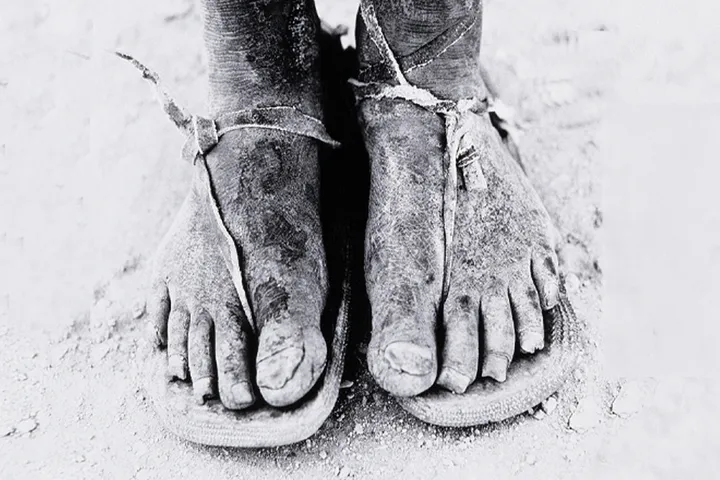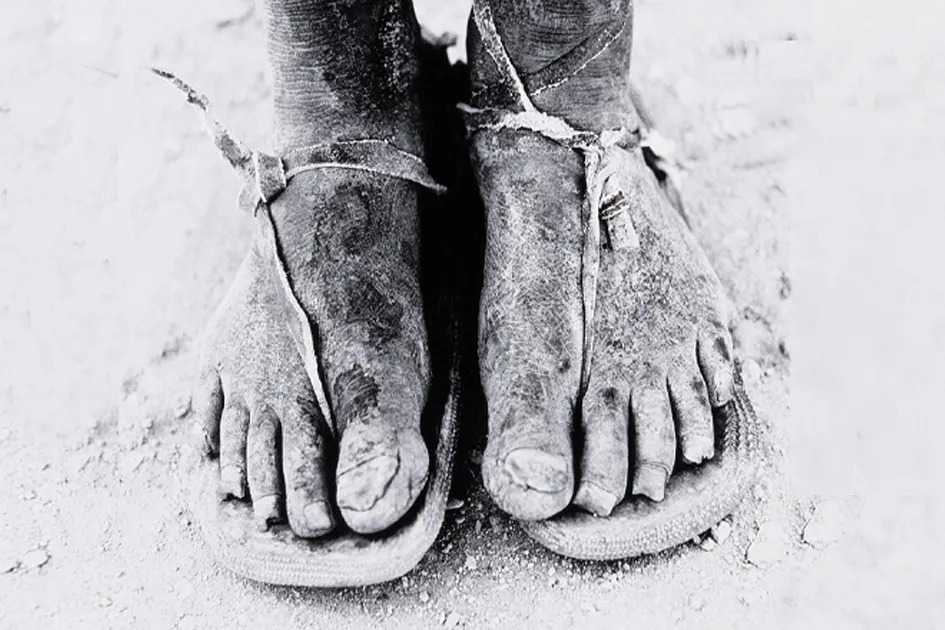The Bible is full of promises about God’s grace, but sometimes we let our guilt over sin supersede truth. The result? We refuse to forgive, especially ourselves. We might think we’re doing something noble, holding ourselves to a higher standard. However, refusing to forgive ourselves is actually a form of pride. When we don’t let God’s grace cover our failings, it’s as if we believe our assessment of sin is better or more accurate than His.
 Illustration by Jeff Gregory
Illustration by Jeff Gregory
Through Moses, God tells His people, “You shall be holy, for I the Lord your God am holy” (Lev. 19:2). And one way He expresses His holiness is through the lavish forgiveness He extends, removing our sins “as far as the east is from the west” (Ps. 103:12). As we mature in our Christian faith, we reflect God’s holiness by extending forgiveness the way He does, even—perhaps especially—toward ourselves.
It can be hard to step into agreement with God and truly forgive ourselves as we have been forgiven. But we hope the observations and exercises in this guide will free you from the grip of unforgiveness, just as Jesus intended. The truth is, forgiving yourself isn’t something you master once—it’s a skill you'll practice throughout life. Sometimes old guilt resurfaces. But each time you work through these suggestions, you’ll be building your capacity to respond with grace rather than condemnation. “It was for freedom that Christ set us free” (Gal. 5:1)—and that includes extending grace to ourselves.
An Honest Assessment
You might be wondering, What does it actually mean to forgive myself? Isn’t knowing I’m forgiven by God enough?
Simply put, forgiving oneself means moving from believing in to living in agreement with the forgiveness that is already ours. And there’s a significant distinction between the two. Knowing and trusting that we are forgiven in Christ is a crucial first step. But if we never live out of that abundance, we risk denying the grace God wants to pour out upon us as His beloved children.
So how do we know if we’re stuck in a prison of unforgiveness? What is the difference between being convicted of our sin and remaining at an impasse of guilt and shame? The presence of spiritual, emotional, and mental unease—especially when we are alone with our thoughts—can be a good indicator.
When you wake up, what are your first thoughts? Take a few extra minutes each morning to contemplate and label them. Perhaps you’ve noticed the presence of anger, shame, or bitterness in your spirit but can’t quite figure out why.
When you’re falling asleep at night, do you rehearse your failures? Do you ruminate on past transgressions, even after you’ve repented and sought forgiveness?
Do you ask God over and over to forgive you for the same thing?
If these sound familiar, it may indicate you’re struggling to forgive yourself. Take heart: God’s Word tells us that we are invited into daily internal renewal through the power of the Holy Spirit (2 Cor. 4:16). It is never too late to begin again—to learn to walk in grace and forgiveness toward yourself.
Shift Your Focus
Once we have acknowledged the ways unforgiveness has kept us focused on something besides the generous heart of God, we are free to align with His extravagant forgiveness for us. It is a practice that grows easier with time, but it can be difficult to know where to start. Below are some prayerful next steps you can take. Consider keeping a journal and pen nearby. Also, try to find a quiet place where you can process these things with God.
If you’re feeling uncomfortable, take a few deep breaths—inhaling through your nose and exhaling through your mouth. This simple action triggers something doctors call “the relaxation response,” which reduces heart rate, blood pressure, and stress hormones in the body. And each time you breathe, pray a simple prayer to help you begin to focus on the Lord. For instance, try one of the following or create your own from a passage of Scripture. (The book of Psalms is an excellent source.)
(Inhale) Spirit of God,
(Exhale) show me truth.(Inhale) Merciful Father,
(Exhale) open my eyes.(Inhale) Loving Master,
(Exhale) enlighten my mind.
When you’re calm, ask the Holy Spirit to guide you and to reveal any areas where you’ve been too harsh with yourself. Take your time. Be patient and trust God. He knows exactly what you need.
Once the Holy Spirit has brought something to mind, explore it by asking one or more of the following questions:
What am I trying to accomplish by withholding forgiveness from myself?
What am I afraid of losing if I forgive myself?
What might I gain if I let go of my guilt?
Would I treat someone else the way I’m treating myself?
Am I beating myself up because that’s easier than owning my mistakes and making things right?
Rely on Scripture to Reframe Your Thoughts
It can also be helpful to explore passages of Scripture that speak of God’s forgiveness for others, remembering that those words apply to you, too.
Here are a few passages to consider. Read them out loud, repeating verses, phrases, or words that resonate with you. You can begin with:
Psalm 6:1-10
Psalm 32:1-11
Psalm 103:1-22
Luke 15:1-7
Luke 15:11-32
Romans 8:1-12
Colossians 1:13-23
Having verses close at hand enables us to actively resist the Enemy’s schemes and to take “every thought captive to the obedience of Christ” (2 Cor. 10:5). Likewise, we can keep an eye out for our unforgiving thoughts, identify them, and give them to Jesus. When we do, we lift our gaze from our failures to the face of Christ beholding us in love.

When you become aware of a thought pattern that keeps you from experiencing God’s forgiveness, try reframing it with these steps:
1. Name the thought.
For example: “I failed miserably. I am unworthy of being loved.”2. Focus on the truth.
Using what you’ve learned from Scripture as a guide, ask the Holy Spirit if your thought is in line with what God says.3. Reframe the thought.
Say something like: “Yes, I did something wrong. Even so, nothing can separate me from the love of God. I am worthy” (Rom. 8:38-39).
Let Your Body Lead
At times it’s challenging to fully comprehend something abstract like forgiveness. In those moments, we can use the wonderful bodies God gave us to help make the lesson tangible through an embodied prayer practice.
When you need to let something go, you can pray with your palms down, telling the Lord, “I surrender the illusion that refusing to forgive myself is holy. Help me choose a better way.”
When you’re ready to receive the grace God offers, you can pray with your palms up and say, “I receive forgiveness in Jesus’ name.”
Create Visual Reminders
Once you work through a spiritual challenge and have forgiven yourself, it can help to set up an Ebenezer, or a stone of help. (See 1 Sam. 7:12; Deut. 27:1-8.) This might be a stone in a garden, a plant in your window, or any other object of special significance. Every time you see it, let it remind you that you’re forgiven.
No Sin Too Great
Though Peter denied Him three times after promising he would die with Jesus, the Lord gave His disciple the opportunity to make amends. Three times, Jesus asked the question, “Do you love Me?” and entrusted Peter again with his calling. (See John 21:15-17.) Jesus knew exactly what the disciple’s guilty heart needed so he could be free of shame and carry out His kingdom mission. Jesus knows what your heart needs, too.
The journey toward self-forgiveness is rarely a straight line. Like Peter, we may find ourselves returning to patterns of guilt and self-condemnation, even after we’ve experienced God’s forgiveness. This is part of learning to live in grace. The goal isn’t to achieve perfect self-forgiveness once and for all. Instead, let’s aim for greater ability to recognize when we’re withholding grace from ourselves—and to return more quickly to the truth of who we are in Christ.
Whenever we practice receiving the Lord’s forgiveness, we build spiritual muscle memory. We are training ourselves to respond to guilt with grace rather than condemnation. Over time, we may find that the intervals between our struggles with self-forgiveness grow longer, or that we’re able to move through them more swiftly.
Letting go of guilt involves drawing closer to—not moving further away from—Your Father’s side. With Him, every day is a chance to begin again, walking in the freedom and fullness of His grace. And when tomorrow brings another opportunity to forgive yourself, you can approach it with the confidence that comes from knowing God's mercy is new every morning (Lam. 3:22-23).





